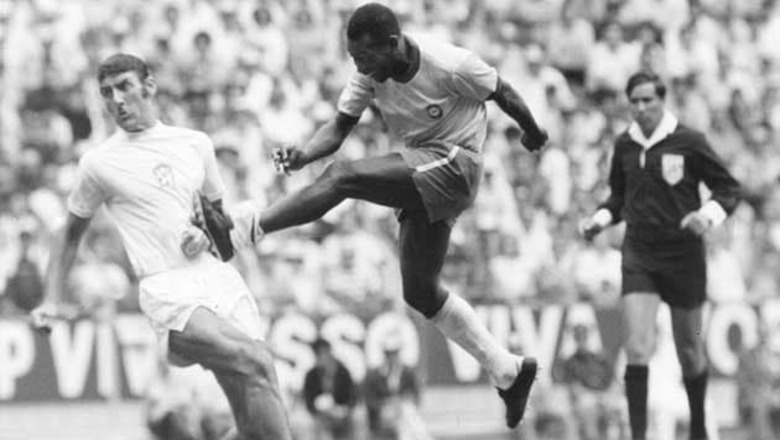
views
The beautiful game returns to its spiritual home with the World Cup 2014 in Brazil. We are revisiting the 100 most memorable moments from the past editions.
Some are inspirational, some are controversial. Some will leave a smile on your face, some will make you wanting for more. You will find everything here.
The first installment: Moments 81 - 70.
80. Match: Italy vs Brazil: Semi-final
Venue & Date: Stade Vélodrome, Marseille, France, 16th June, 1938
Brazil faced Italy in the second semi-final of the1938 World Cup. Brazil's progress to this stage of the World Cup was an interesting story by itself. In the first round - the tournament was a knockout affair - they defeated Poland in a goal fest by a 6-5 margin in extra time, after the game ended 4-4 in 90 minutes. Leonidas da Silva scored a hat-trick for Brazil and Ernest Wilimowski from Poland netted 4 goals in that match. Leonidas was already recognized as a great player, and later became a legend in Brazilian football, scoring over 500 goals in club football. He was playing for Flamengo when he came into the World Cup and had already had successful stints with Botafogo, Vasco da Gama and Penarol. Everywhere his goal scoring records were phenomenal, averaging more than a goal per match. He was thus considered one of the best players in the first half of 20th century.
Brazil then defeated Czechoslovakia 2-1 in the quarter-final replay after the original match ended (after extra time) with some rough tackles, two red cards and a 1-1 draw. Leonidas scored a piece in both the matches, taking his tally for the tournament to five.
Defending champion Italy defeated Norway 2-1 in the first round and edged past host France 3-1 in the quarter-finals. Though Italy had the likes of Silvio Piala, Guiseppe Meazza, and Gino Colaussi in their ranks, they lacked the domination they displayed four years ago. However, their game was still very effective and compact.
Brazil thought otherwise, and considered victory against Italy in the semi-final just a mere "formality". Hungary was already in the final scoring 13 goals and conceding only one in 3 matches. The Brazilian team management considered Hungary a major threat for their title ambitions, and decided to rest Leonidas, who was exhausted due to the additional quarter-final replay match and was also carrying a minor injury, in the semi-final match-up against Italy.
Brazil had already travelled - that too by train, for hours, as was the norm those days - from Strasbourg to Bordeaux to Marseille to play the World Cup matches, and the semi-final was their third match in four days. These long journeys actually exhausted many players and Brazil coach Ademar Pimenta fielded very different looking line ups in those three matches.
Italy took the lead in the 50th minute via Colaussi after a barren first half, and Meazza scored from the penalty spot 10 minutes later. Romeu Pelliciari, an Italian origin Brazilian footballer, managed a late consolation goal for Brazil, but Italy managed to win 2-1 to knock Brazil out of the World Cup. There was no substitution rule in those days because of which Leonidas could not be brought on to salvage the game. Italy went on to beat Hungary 4-2 in the final and successfully defended the World Cup title, a feat repeated only by Brazil so far in 1962. Brazil claimed third place by defeating Sweden 4-2. Leonidas was back in the line-up and scored two goals to finish with 7 goals and the Golden Boot in the competition.
The omission of Leonidas from the semi-final line-up is considered one of the major tactical blunders in World Cup history. Pimenta later blamed the scheduling as his star man was not fit enough to play. Some even claim that Italian head honcho Benito Mussolini had forced Leonidas' omission. These are, of course, all unsubstantiated claims. But one thing is for sure - a half fit Leonidas could have taken Brazil to the final, such was the goal-scoring power of the man.
79. Match: Hungary vs Brazil: Quarter-final
Venue & Date: Wankdorf Stadium, Berne, Switzerland, 27th June, 1954
Hungary was firm favourites coming into the match, having won previous 32 matches including 1952 Olympic gold medal, a 6-3 victory against England at Wembley - the first ever defeat of England at home by a country outside United Kingdom - in 1953. In the 1954 World Cup group stages they humiliated Korea Republic 9-0 and handed a drubbing of 8-3 to West Germany. Their line up consisted the likes of of Nandor Hidegkuti, Zoltan Czibor, Sandor Kocsis and Ferenc "The Galloping Major" Puskas.
Brazil on the other hand, was coming into the World Cup after the heartbreak at Maracana - a story to b told in one of our future installments - where theye were beaten 2-1 by Uruguay in the previous World Cup final. They had a major overhauls in their coaching staff and players and their shakiness was evident as they needed a lucky draw to edge out Yugoslovia to reach the knock out stage.
The Magyars started on the front foot and took the lead after Brazil failed to clear a ball in a goal mouth milieu in the 4th minute through Hidegkuti. Brazil defence was again caught napping in the 7th minute when Kocsis ran free inside the penalty area unmarked and headed the ball in the goal from a cross that came from right wing. Brazil was awarded a penalty on 18th minute after Humberto was fouled. Regular penalty takers Julinho and Didi walked away not willing to take the responsibility as Djalma Santos took the spot kick - and later described it as the toughest in his career - to make it 2-1. The match was an entertaining one though score remained same at 2-1 till half-time, and there was no sign of things to come so far.
Hungary increased the lead to 3-1 at the hour mark, via Mihaly Lantos from the penalty spot, after Joao Pinheiro handled the ball inside the penalty area. This decision made the Brazilian footballers, supporters and journalists fuming who invaded the pitch. Police had to intervene, clear the playing area and the match restarted after a hiatus of five minutes. Brazil quickly reduced the margin to 3-2 via a superb volley by Julinho from outside the penalty area in the 65th minute.
Fouls, some pretty hard ones, had already started in the field. But all hell broke loose after both Nilton Santos and Jozsef Bozsik were sent off in 71st minute. There was retaliation of a foul, and things got out of hand after that. In the desperation to get back in the match and not to concede any more goals, Brazilians started cutting down each opponent attack with vicious fouls. 11 minutes from time, Humberto made a dangerous tackle on Hungarian midfielder Gyula Lorant, and referee Arthur Millis - incidentally a linesman in Maracana 4 years ago - immediately gave Humberto the marching order.
After being reduced to 9 men, Brazil players started making brutal tackles on advancing Hungarian players, who were overlapping and using the wings at will, taking shot after shots towards Brazil goal. Their efforts finally were rewarded when Kocsis headed the ball in the goal connecting a cross from right flank in the 88th minute. Brazil realised it was now impossible to overturn a two goal deficit within 2 minutes with a man down, and tried not to play football for the last few minutes, targeting the legs of Hungarian players as free kicking bags.
Willis later described that coming into the match he thought he would officiate a classic. Instead it was a horrible affair, a battle in the end, and he was worried about finishing the game safely. He also termed the fury as one between the Communists Hungarians and Catholic Brazilians.
After the final whistle, loudspeakers summoned all the police available on the grounds to the field. Puskas, who was injured and did not play in the match, started fighting with Pinheiro. Supporters, journalists and officials from both the sides joined the fight - Pinheiro was struck with an iron bar, Hungary coach Gustav Sebes emerged with a scar on cheek, and some of the journalists were thrown off like bag of potatoes. Hungary cancelled the subsequent tour of Brazil, as the ill temper continued in the tunnel, to the dressing room and even outside the stadium - many a lights were broken, furnitures were damaged. The match was remembered less due to footballing reasons, and more due to the fierce battle that took place on and off the field during and after the match, and infamously termed as "Battle of Berne".
78. Match: Brazil vs Italy: Final
Venue & Date: Estadio Azteca, Mexico City, Mexico, 21st June, 1970
It was the final of 1970 World Cup. Brazil and Italy had both won the Jules Rimet Trophy twice, and the winner of the 1970 edition would take the trophy home forever. The stakes were quite high, and both the teams had played some gruelling but excellent matches to qualify for the final. Italy defeated West Germany 4-3 in the semi-final which was later termed as match of the 20th century. Brazil qualified for the final with a 3-1 win, edging past continental rival Uruguay, who had been eyeing the lucrative third cup ever since 1938.
Brazil took the lead through a header from Pele in the 18th minute but Roberto Boninsegna equalised for Italy in the 37th minute. The score remained 1-1 till halftime, but Brazil took control of the match in the second half. Gerson scored in the 66th minute and Jairzinho scored five minutes later to give Brazil a comfortable 3-1 lead. Italy tried to reduce the margin but Brazil was controlling the game by and large through small strokes of passes around the field. But the "real" touch of samba from Brazil came around the 85th minute. Tostao, the centre forward, came down towards the left back position to pass the ball to Brito, who casually stroked it to Clodoaldo. Clodoaldo passed it to Pele, Pele passed it to Gerson, who again stroked it to Clodoaldo. With a series of swift little movements, Clodoaldo dodged past four Italian defenders Gianni Rivera, Angelo Domenghini, Giancarlo De Sisti and Antonio Juliano one by one, and then passed it to Rivelino near the mid-pitch in the left wing. Rivelino cut back a little, and played a perfect through ball with his left foot to an advancing Jairzinho in the left wing.
It is worthwhile to point out here that Coach Mario Zagalo discussed these types of situations with the players, especially with Jairzinho before the game. Jairzinho was asked to draw Italian captain, the left back Giacinto Facchetti towards the left side to leave some open space on the right wing through which Carlos Alberto could overlap. The above situation exactly presented this practised scenario.
Facchetti was busy defending Jairzinho and left a lot of players open on the right and middle in front of penalty area. Jairzinho passed the ball to Pele who was right outside the D box of the penalty area, with Pierluigi Cera and Sandro Mazzola facing him. Pele held up the ball for 2-3 seconds as Tostao shouted to Pele that Carlos Alberto was advancing down the right flank like a fast-speeding whistling train. Pele timed his release perfectly for Carlos Alberto to unleash a thunderous low right-footed volley which crashed into the Italian goal like a bullet. The whole Brazil team joined a jumping joyous Carlos Alberto in the celebration as Brazil sealed the Jules Rimet trophy forever with a 4-1 win over Italy.
Nine outfield players were involved in the goal scored by Alberto, which is considered the best "team" goal ever scored in World Cup history. In 2006, FIFA presented Carlos Alberto with a trophy to commemorate the most beautiful goal in World Cup football.
77. Match: West Germany vs Austria: Final match of the Group Stage
Venue & Date: Estadio El Molinón, Gijón, Spain, 25th June, 1982
Algeria had defeated West Germany 2-1 in the opening match of Group 2, already covered in our countdown #88. Germans took a sweet revenge in the same venue, 9 days later, in the last match of Group 2 between West Germany and Austria.
Algeria and Chile had played their last of the group on the previous day. Chile were knocked out failing to secure a point. Algeria with 2 wins - in those days win was awarded with 2 points - were sitting pretty for advancing to the next round. Austria was leading the group with all win record from their first two matches while West Germany had to win their last match for having any hope of progressing further in the tournament.
But there was a twist to this simple calculation. In the event of teams finishing with same points, goal difference was to be used for ranking the teams in a group. Algeria had finished with a goal difference of 0. Austria had a goal difference of +3 whereas the same for West Germany was +2. So a victory for West Germany would definitely see them through and a narrow defeat - by a goal or two - for Austria would see them accompanying the Germans at the expense of Algeria.
Austrians had defeated West Germany 3-2 in Cordoba in the last group match 4 years ago in Argentina to knock them out of the World Cup (a story to be relished later on this series). It was a similar situation again. Actually, the two European nations were not exactly great pals on and off the footballing field. The rivalry between Germans and Austrians date back to 1908, and there were several fierce battles fought between the two countries on the football field over the course of century. There was enough political rivalry between the two as well, dating back to the time of World War II. So, the football world and fans expected a tough and intriguing battle on the field.
The match began with West Germans throwing 7-8 players in the attack and vigorously searching for a goal. They did not have to wait for long, as Horst Hrubesch headed in a cross from left wing by Pierre Littbarski, in the 10th minute of the match. But suddenly after the goal, fans witnessed a strange pattern of football, where the ball was moved around mostly in the midfield. Austrian players did not close down the German players with any pressure. German backline consisting of Karlheinz Forster, Hans-Peter Briegel and Uli Stielike kept playing on passes in their own half, with very occasional aimless long balls which were again cleared by the Austrians. Karl-Heinz Rumenigge once advanced through the Austrian defence but took a very weak shot that rebounded off Austrian keeper Friedrich Koncilia.
The fans realised what was happening. The whole world realised what was happening. The Spanish crowd started chanting "fuera, fuera", which meant "out, out". The Algerian fans could not believe that such things could happen in World Cup, and some of the fans started waving bank currency notes towards the players.
All these did not matter to the shameless 22 players of West Germany and Austria on the pitch, and they kept on playing the farcical game of back passes. West Germany, who had scored 33 goals in 8 matches en route to World Cup, were suddenly lacking the killer instinct to go for more goals. The greatest sham on turf, alleged to be one of the most open match fixing incident, made everyone associated with the game - the officials, commentators, players, and fans - feel ashamed but no one could do anything to stop that. The match ended 1-0 in favour of West Germany and both Germans and Austrians advanced to the next round in expense of Algeria. Autria had a 99% pass completion rate in their own half. The Germans were not so accurate - their stat was 98% only! Algerian fans later proudly expressed that it's better to go out with dignity than continue to play the beautiful game with such disgrace.
The shameless German goalkeeper Harrald Schumacher left the field among whistles from the German supporters, by punching the fist in air while entering the tunnel. One of the German supporters set fire on the flag of their own country.
This match is infamously termed as "Shame of Gijon" and continues to cause pain even now among the football fans. FIFA said they could not overturn the result or change the schedule of remaining matches in 1982 World Cup. This match did prompt a change and from 1986 World Cup onwards, the last set of matches in the same group are played on same time to avoid these kind of disgrace.
76. Match: Russia vs Cameroon: Group Stage
Venue & Date: Stanford Stadium, Stanford, USA, 28th June, 1994
Russia was placed in Group B alongside Brazil, Cameroon and Sweden in World Cup 1994. Russia lost both of their opening two matches by 2-0 to Brazil and by 3-1 to Sweden. Cameroon also was having a lackluster tournament where they drew with Sweden 2-2 and lost to Brazil 0-3. This was the first time that 3 points were awarded for a win. So going into the last set of matches, Russia was already eliminated from the tournament - and playing without any pressure only for pride - while Cameroon had an outside chance if Brazil beat Sweden.
Oleg Anatolyevich Salenko was an average player, trying his trades in Spain with now-defunct C D Logroñés. Victor Onopko and Valeri Karpin were more celebrated players in an otherwise average Russian line up. There was not much to expect from the match, but it later dished out two world records.
Russia opened the scoring for Russians in the 15th minute when Cameroon defence failed to clear a ball in the middle of the penalty box and a diagonal shot from Salenko beat Cameroon keeper Songo'o. In the 41st minute, Russians were awarded a free kick in the middle of Cameroon half. Cameroon defenders were caught napping when the free kick was quickly taken and played to Ilya Tsymbalar to the left side. He passed it to unmarked Salenko who dribbled past onrushing Songo'o and tapped the ball into an empty net to give Russia a 2-0 lead. Salenko completed his hat-trick just before the halftime from a penalty kick,by calmly placing the ball to the left corner of the goal. A chance of Cameroon qualification into the next round was all but over, as news came in that Sweden was leading Brazil 1-0 at halftime in the other match.
Russia continued to dominate the match in the 2nd half which saw insipid football from Cameroon who were mere shadows of the indomitable lions in Italia '90 4 years ago. Only sparkling moment for Cameroon came right at the beginning of 2nd half when 42 year old Roger Milla pulled one back, becoming oldest player to score in a World Cup final. In the 72nd minute, after Cameroon failed to clear a ball from a Russian corner, Omari Tetradze sent in a low cross from the right wing and Salenko scored from close range connecting the cross to make it 4-1 Russia. He was at par with Ernest Willmowski of Poland with 4 goals in a match at that time. But Salenko broke the record 3 minutes later, when a through ball from the midfield again caught Cameroon defence off guard and Salenko broke free inside the penalty area to tap in the ball past advancing Songo'o to make it 5-1 for Russia. Dmitri Radchenko added another goal in the 81st minute to complete the 6-1 rout, and Russia finished the world cup campaign on a positive note. Oleg Salenko became the first - and only so far - player to score 5 goals in one World Cup match, and the record still holds good.
75. Match: Portugal vs Netherlands: Round of 16
Venue & Date: Frankenstadion, Nuremberg, Germany, 25th June, 2006
Portugal were fortunate enough to be in a very easy group and expectedly topped Group D to progress to the knockout stages. Netherlands had to settle as runners-up in Group C and faced the Selecao. A mouth-watering tie was in prospect with the likes of Wesley Sneijder, Robin van Persie, Arjen Robben taking on Luis Figo, Deco, Christiano Ronaldo. The match did manage to grab worldwide attention, but not for its excellent play on the pitch.
It took only two minutes for the first booking of the match, the recipient being Mark van Bommel. On the 7th minute, his fellow Dutch defender Khalid Boulahrouz was shown another yellow for injuring Ronaldo and ending the match for him. A crying Ronaldo later alleged that the tackle was "clearly an intentional foul to get me injured." After a lull, Maniche got booked for a foul on Van Bommel on the 20th minute. Maniche scored for Portugal on the 23rd minute but nobody cared about it.
Next caution went to Portugal's defensive midfielder Costinha for sliding into Dutch veteran Phillip Cocu shortly after the half hour mark. He was then the first to be sent off during the first half injury time after being shown a second yellow card for a deliberate handball. As a tactical switch, Petit came in and he also did not more than five minutes for getting into the books. Next set of cards was for Giovanni van Bronckhorst and Luís Figo on the hour mark. Figo was cautioned for a headbutt that was later supported by then manager Luiz Felipe Scolari but surprisingly he was not punished for his controversial remarks.
Having being booked quite early in the match, Boulahrouz found it hard to be out of action and duly received his second yellow - and subsequent marching orders marching orders - after his ferocious tackle on Figo. This ignited a brawl on the touchline, involving Boulahrouz (who was in a spat with Simão), André Ooijer and the Portuguese bench. After the intervention of the fourth official Marco Rodríguez, the match restarted. Barely within ten minutes, Portugal's playmaker Deco roughly fouled Dutch defender John Heitinga and was booked. In the hot tampered match Netherlands did not bother to show sportsmanship and give the ball back after Portugal had cleared it into touch to allow a player to receive medical treatment. In the following fracas, Sneijder pushed Petit to the ground to receive his caution while another yellow was shown to Rafael van der Vaart for dissent.
Portuguese thought that they are losing the battle for cards. Shot-stopper Ricardo (for time wasting) and left-back Nuno Valente (for a rough foul) were adamant to make it an even contest on that front. Robin van Persie tried hard but could not convince the referee for a card after his gesture when he was accused of diving in the Portugal penalty area. Next, Deco received his second caution and was off in the 78th minute for delaying to take a free-kick. Philip Cocu somehow managed to evade a card as he wrestled Deco to the ground in his attempt to retrieve the ball.
The referee, it seemed, had enough of it as he again overlooked a foul of Simão on Dutch goalie Edwin van der on the 88th minute. But it was not to be. In the injury time, Van Bronckhorst was sent off for a second bookable offence on Tiago.
The match witnessed a total of 16 cards - with both teams ending the match with two players getting sent off. Among them, Boulahrouz, Deco, and Van Bronckhorst were spotted sitting together on the sidelines after being sent off, the latter two (Barcelona teammates) engaged in a conversation. Commentator Gary Bloom referred to it as the "Bad boy's corner".
Referee Valentin Ivanov from Russia was blasted by FIFA president Sepp Blatter for his meager handling of the volatile match situations and suggested that Ivanov should have given himself a yellow card for his poor performance during the match. With a flurry of cards shadowing the ultimate match, this encounter is known in football history as the Battle of Nuremberg.
74. Match: France vs Italy: Quarter-final
Venue & Date: Stade Olympique de Colombes, Paris, France, 12th June 1938
Goalkeepers have always been under the scrutiny. While errors from outfield players are always seen as part and parcel of the game, one mistake from the man under the bar more often than not goes on to have the most telling effect on the match outcome. Laurent Di Lorto, the French shot stopper in the 1938 World Cup learnt it the hard way.
After defeating Belgium in the opening match, the French were quite confident of leaving their mark at the world stage in their home country. They were facing the reigning champion Italy. After nine minutes of hurly-burly, Italian striker Gino Colaussi dashed forward down the inside-left channel and looped a seemingly harmless ball towards the top-left corner. The ball, dropping quietly like a feather should have been easy to deal with, but Di Lorto, a very competent and reliable goalie otherwise, suddenly lost it. He inexplicably punched the ball straight into the net, jerking, setting and thwarting all in one rapid movement.
Di Lorto's notorious day was yet to be over. Di Lorto, having directed the ball into his own goal, chased after it vacuously, and managed to hit his nose into his right-hand post. The Italians, clad in an all black attire, that will be the topic of discussion some other day, gleefully accepted the gift.
Passing Shots: Di Lorto could not recover from the shock and he never turned up in his country colours again. France lost the match by that solitary goal. Italy went on to retain the World Cup.
73. Match: Brazil vs France: Semi-final
Venue & Date: Råsunda Stadium, Solna, Sweden, 24th June 1958
The World got to witness the arrival of a 17-year old wiz kid in the 1958 World Cup. Edson Arantes do Nascimento, better known as Pelé. Brazil was a star studded team having the likes of Gilmar, Nilton Santos, Didi, Zito, Mario Zagallo, Garrincha, Jose Altafini and others. So, naturally, at the start of the tournament, Pelé was not getting a place in the starting XI. Brazilian coach Vincente Feola also was initially hesitant to throw the teen into the World Cup finals. But he was persuaded by other Brazilian players and finally Pelé made his World Cup debut against Soviet Union in the last group stage match.
He went on to score his first goal in the tournament in the quarter final against Wales, a story already told in this ongoing series (#87). Pelé's dazzling skills amazed the spectators to no end and it was time the whole world would experience something extraordinary.
Brazil was to meet the free scoring France team who would finish the tournament with a tally of 23 goals from 6 matches. This match was going to be a testament of the free flowing football in the 50′s - super talented players dribbling throughout the pitch, a non-existent midfield resulting in attack after attack for either side, a exhilarating game played at an impeccable pace. One thing was for sure that the fans will be treated with some mesmerizing skills, some jaw dropping moments and plenty of goals. It was also touted as the eventual final match as the winner of this tie was expected to go on and win the cup.
And the match did not disappoint. Vavá opened the scoring on the 2nd minute only to be matched by Just Fontaine - whose world record of 13 goals scored in this edition looks hard to be broken ever - on the 9th minute. Then on the 30th minute, Les Blues were dealt a major blow when their most experienced defender and captain Robert Jonquet got incapacitated following a clash with Vavá. The French were effectively down to ten men from then onwards - no subs were allowed back then - and could never compete against a brilliant Brazil team. Didi took advantage and scored on the 39th minute to finish the half with a lead of 2-1 for the Samba boys.
After the break Pelé decided it is time to announce himself on the world stage. He single handedly turned the match on its head, leaving the French in disbelief as he scored a second half hat-trick - goals scored on 52, 64 and 75th minutes. Pelé was already the youngest player to play a World Cup and the youngest scorer in a World Cup. He also became the youngest player to score a hat-trick in the World Cup. Later in the tournament, he would go on to lift the World Cup and thus become the youngest player to do so.
For France, Roger Piantoni reduced the margin of defeat in the 80th minute but it was too little too late. By the end, the difference between the teams was a small word - Pelé.
72. Match: Netherlands vs Argentina: Final
Venue & Date: Estadio Monumental, Buenos Aires, Argentina, 25th June 1978
Rob Rensenbrink was a member of the prolific Dutch national football team that reached two consecutive World Cup final in 1974 and 1978, only to return empty handed. A creative left winger, who also thrived when played in a more central role upfront, he was a legend in Belgium playing in the great Anderlecht side of the 1970s. Besides his dazzling dribbles down the flank, Rensenbrink also made a name for himself as a cool finisher. He was a prolific penalty kick taker - with his gamesmanship of letting the goalie know where he is going to shoot and yet beating him, he only ever missed two penalties in his entire career.
Having played in the shadow of - and often out of position due to - the great Johan Cruyff in the previous World Cup, Rensenbrink found more room to showcase his own considerable talent in 1978 edition. Cruyff had retired from international football and Rensenbrink found himself playing in his favoured position - left-hand side of a front three along with Johnny Rep and René van de Kerkhof. He had scored a hat trick in the opening game against Iran, Netherland's solitary win at that stage, where two of his goals were from his trademark spot kick. He converted another penalty against Scotland, albeit in a losing cause, which was the 1000th goal in World Cup history, and another in the first match of second round group stage 5-1 win over Austria.
The final was against the hosts, a repeat of the event four years back. It was a tense affair. The Dutch accused the Argentines of coming out late and keeping them waiting for the kick-off. The Argentines in turn questioned the legitimacy of a plaster cast on René van de Kerkhof's wrist that could have injured others. These allegations and counter allegations built up tension in front of a hostile Buenos Aires crowd.
In a rowdy atmosphere, on the 37th minute, the Netherlands fell behind to a first-half Mario Kempes strike. Dick Nanninga's replied with a goal 8 minutes from time. With the clock ticking, in the dying seconds of normal time, a long pass from the Dutch captain Ruud Krol gave Rensenbrink a half-chance to score. But his shot from a very acute angle was deflected on to the post and subsequently bounced clear. Had he scored, it is most likely that Netherland would have won the World Cup with Rensenbrink being top goal scorer. Instead the match went on to extra time where Argentina scored twice for a 3-1 victory. Kempes scored one of them, won the Golden Boot, Argentina got their maiden World Cup and the Netherlands again had to settle for the runners-up spot for the second successive time.
The Netherlands, citing the controversies surrounding the match, did not turn up for the post-match ceremonies. They could not fathom the fact they were so close yet so far from winning the World Cup, that too two times in a row. Rensenbrink finished the tournament with 5 goals, 4 of them by converting from the spot - a feat only achieved by Eusébio in 1966, although he scored 9 in total.
71. Match: Denmark vs Spain: Round of 16
Venue & Date: Estadio La Corregidora, Querétaro, Mexico, 18th June 1986
The Denmark side of 1980's, known as the Danish Dynamites, had not won anything except for the fans' hearts. Their spirited display, presence of skilful players like Preben Elkjær Larsen, Michael Laudrup, Jesper Olsen and others have made them the black horse for the 1986 World Cup. But destiny had it planned otherwise.
The Danes comfortably topped Group E, labelled as the "group of death". In three matches, they had scored nine goals, conceded only once and won all their group matches including the one against the eventual finalist West Germany. Naturally they were the hot favourites against Spain in the round of 16. Their ultra attacking style was captivating and it brought them appreciation from football lovers across the globe.
But dark clouds were already gathering over the corner. Denmark had already qualified for the next round before their last group match against the Germans. But still they risked fielding their full strength side. Frank Arnesen, the influential Dane playmaker, was disturbed before the game as his wife had fallen ill. Clearly he was out of his mind as he committed a cynical foul, was sent off and had to miss the next game against Spain.
Nonetheless, the round of 16 match started with the familiar chant: "They were Red, they were white, they were Danish Dynamites." Denmark took the lead through a magnificently characteristic yet lazy penalty from Olsen on the 33rd minute. The match was a thrilling one where Spain was not going down easily and was giving the mighty Danes a run for their money. Denmark was clearly missing Arnesen big time.
And then the entire game turned on its head on the stroke of half-time. Danish goalkeeper Lars Hogh threw the ball out to Olsen. Olsen first feinted Julio Salinas but then played an inexplicable, blind pass across the face of his own box. Hogh wasn't in the vicinity, but Emilio Butragueno was, and he tapped it into an open net.
Olsen lamented 10 years later saying that he wished he could have changed that moment. But that was not to be.
Denmark simply did not look the same side after that howler. They tried to force the initiative in the second half but Butragueno scored again - he went on to score 4 goals that day - against the run of play on the 56th minute. Denmark had to commit men forward, they lost their shape and discipline and lost the match with an embarrassment of 5-1. Olsen's forgettable day was cut short on the 71st minute when he was subbed off.
To this day, a stern faux pas is often termed as rigtig Jesper Olsen - a real Jesper Olsen. Many had compared this Denmark side to that of the awesome Brazil team of '50s or the Dutch side of '70s. But sadly they could not deliver any major accolades to show for their worth. Nonetheless, football will always remember them as one of the best sides to have embraced the game.
For football analysis and indepth coverage visit: GOALden Times














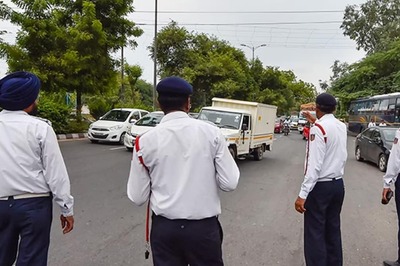
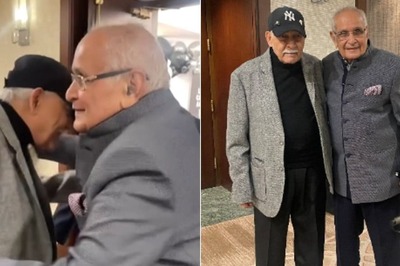

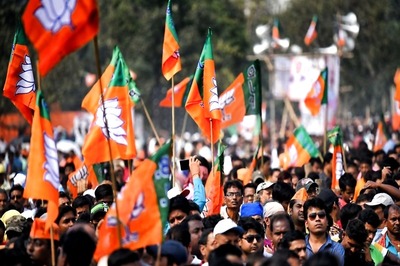
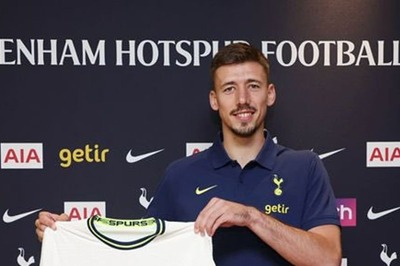

Comments
0 comment